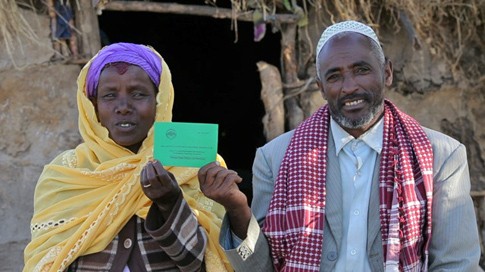- Who We Are
- Mission, Vision and Values
- Organization
- Leadership
- Office of the Administrator
- Bureaus
- Africa
- Asia
- Europe and Eurasia
- Latin America and the Caribbean
- Middle East
- Democracy, Conflict and Humanitarian Assistance
- Economic Growth, Education and Environment
- Office Of Economic Policy
- Office of Development Credit
- Office of Education
- Office of Energy & Infrastructure Programs
- Office of Forestry and Biodiversity
- Office of Gender Equality & Women’s Empowerment
- Office of Global Climate Change
- Office of Land and Urban
- Office of Local Sustainability
- Office of Private Capital and Microenterprise
- Office of Trade & Regulatory Reform
- Office of Water
- Food Security
- Global Health
- Legislative and Public Affairs
- Management
- Policy, Planning and Learning
- Foreign Assistance
- U.S. Global Development Lab
- Independent Offices
- Mission Directory
- Staff Directory
- Advisory Committee
- Board for International Food and Agricultural Development
- Mission Directors
- Coordinators
- Global Development Council
- USAID History
- Operational Policy (ADS)
- Transparency
- Resource Portal

Land and the systems that govern land, resources, and property rights are central to many of our most pressing development issues. In an increasingly urbanized world, eliminating extreme poverty and promoting democratic, resilient societies requires integrated programming between urban and rural places.
USAID’s Land and Urban (LU) Office within USAID’s Bureau for Economic Growth, Education and Environment works to clarify and strengthen the land tenure and property rights of all members of society, and to strengthen complex urban systems and the well being of urban poor. LU collaborates with global partners to ensure that land and urban governance systems are effective, accessible, and responsive. We this by testing models for securing land tenure, and managing urban development and growth, conducting rigorous impact evaluations and research, utilizing geospatial analytics, and disseminating evidence and best practice as it relates to improving land governance and supporting sustainable urbanization
Our Work
USAID currently has land tenure and urban programming in every region where USAID works. LU works to enhance community and local government capacity to improve economic opportunities, manage natural resources, deliver equitable services, and create resilient systems that respond to climate and financial pressures. The office also promotes formal, as well as informal, customary land governance systems for individuals and communities. LU creates opportunities for public and private investments to increase inclusive economic growth, household health and nutrition, and food security. LU also pilots, evaluates, and scales innovative technologies that lower the barriers and costs to attaining effective land governance and service delivery systems.
Strategy and Program Focus
LU incorporates effective land governance and sustainable urbanization solutions into U.S. government development strategies and U.S. private sector foreign investments that protect the livelihoods of the most vulnerable and support inclusive economic growth through:
- Strengthening capacities and skills to understand and address complex topics, including: land tenure, urbanization, resource governance, land use, urban population growth, property rights, and municipal finance with an increased focus on rights and access for women;
- Reducing costs by leveraging resources through innovative partnerships and coordinating with the international community (governments, private sector, and civil society);
- Creating knowledge through scientific research, geospatial analysis, and pilot projects to identify emerging trends and best practice in land governance and sustainable urbanization; and
- Transferring knowledge to USAID and external audiences through strategic communications, knowledge management and training activities to build awareness and capacity.
Results
Highlights of our recent results include:
- Secured the land rights of 182 million people since 2013 through new laws and policies;
- Improved the well-being of the urban poor by implementing USAID’s Urban Policy;
- Safeguarded the rights and livelihoods of indigenous and vulnerable peoples around the world by developing international guidelines for resource governance and responsible investment;
- Maximized impacts of food security and climate change programming by creating information from geospatial data on land, resources, and urban markets for policy decision-making; and
- Executed eight rigorous impact evaluations on land and resource governance programming to demonstrate outcomes and improve Agency program design and learning.
Partners
LU works with a variety of public, private sector, international donor agencies, and NGO stakeholders including the White House, U.S. Department of State, U.S. Department of Agriculture, U.S. Department of Housing and Urban Development, Millennium Challenge Corporation, Food and Agriculture Organization of the United Nations, UN-Habitat, World Bank Group, Kimberley Process Certification Scheme, and the European Union. USAID is also an active member of the Global Donor Working Group on Land, a 25-member body of bilateral and multilateral donors committed to strengthening land tenure globally.
For More Information
- Email us at landmatters@usaid.gov and urban@usaid.gov
- Webpages: www.Land-Links.org and www.Urban-Links.org







Comment
Make a general inquiry or suggest an improvement.